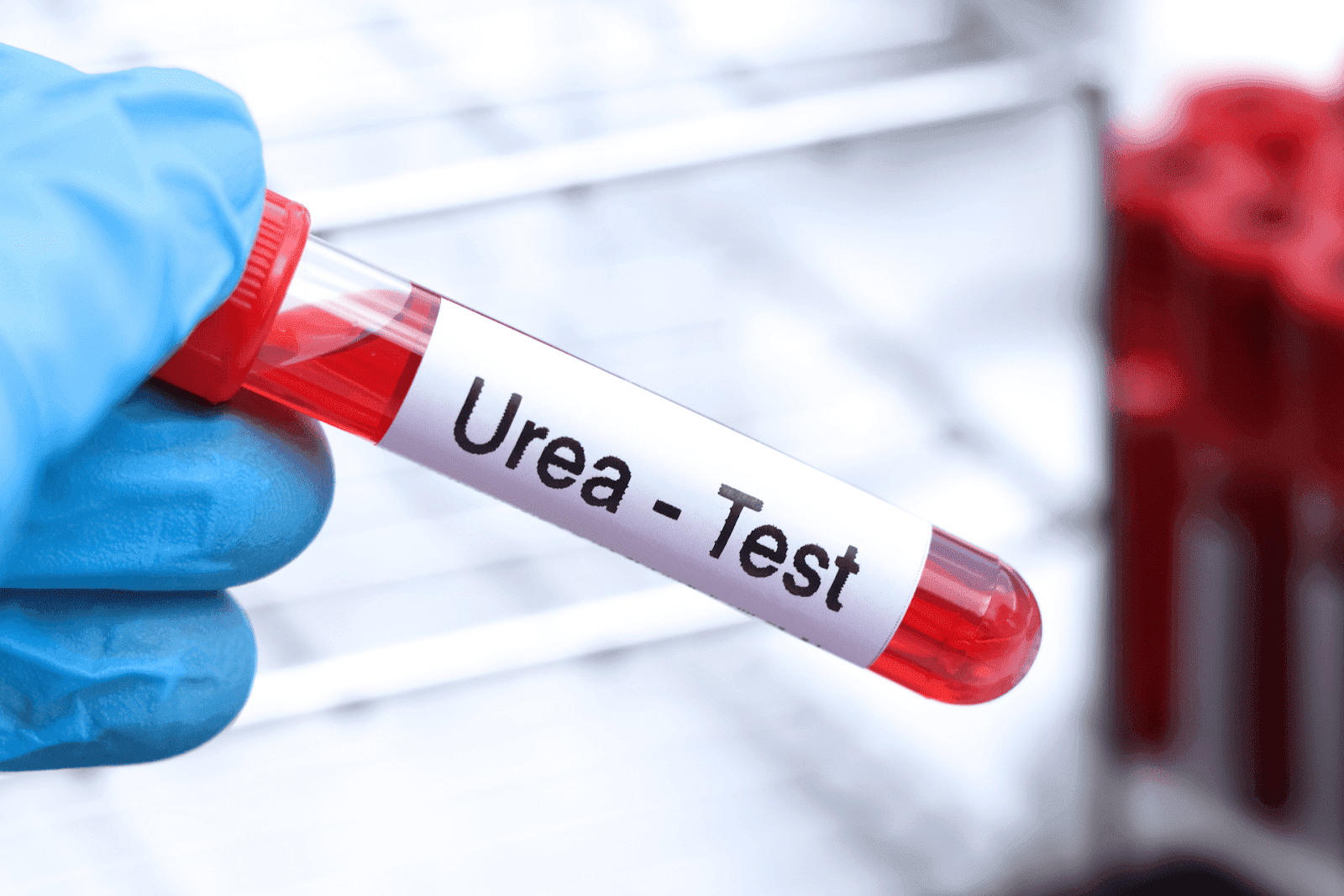High BUN Levels: Should You Be Concerned?
Blood urea nitrogen (BUN) is a standard blood test parameter that helps assess kidney function and overall metabolic health. When BUN levels rise above the normal range, it [...]
Read More
Medically reviewed by Alan Lucks | MD, Alan Lucks MDPC Private Practice - New York on October 12th, 2025.
Normal blood urea nitrogen ranges from 7-20 mg/dL, with levels above 20 mg/dL indicating potential kidney dysfunction, dehydration, or increased protein breakdown in the body.
Dehydration can temporarily elevate readings by 25-50% above baseline, while chronic kidney disease typically shows persistently high levels alongside elevated creatinine (normal 0.6-1.2 mg/dL).
High-protein diets, gastrointestinal bleeding, and medications like NSAIDs, ACE inhibitors, and diuretics can artificially raise levels without underlying kidney damage.
Warning symptoms include facial puffiness upon waking, foamy urine, decreased urination output, persistent fatigue, and metallic taste in the mouth.
The BUN-to-creatinine ratio helps distinguish causes: ratios above 20:1 suggest dehydration or bleeding, while ratios of 10-15:1 point toward intrinsic kidney problems.
Blood urea nitrogen (BUN) is a standard blood test parameter that helps assess kidney function and overall metabolic health. When BUN levels rise above the normal range, it can signal a variety of health concerns, ranging from dehydration to serious kidney issues. Understanding what high BUN levels mean, their causes, symptoms, and treatment options can empower you to take timely action for your health.
BUN stands for blood urea nitrogen, a waste product formed in the liver when the body breaks down protein. Normally, the kidneys filter urea out of the blood and excrete it through urine. The BUN test measures the amount of nitrogen in your blood that comes from urea, providing an indirect indicator of kidney function and hydration status.
Typically, normal BUN levels range between 7 and 20 milligrams per deciliter (mg/dL), but this can vary slightly depending on the laboratory. Elevated BUN levels suggest that the kidneys may not be working efficiently, or that the body is producing more urea than usual due to other factors.
 Why Monitoring BUN Levels Is Important
Why Monitoring BUN Levels Is ImportantSince the kidneys play a crucial role in filtering waste, high BUN levels can be an early warning sign of kidney disease or damage. Moreover, BUN levels can fluctuate with hydration, diet, and other medical conditions, making it a useful marker for overall health monitoring. Regular testing and understanding your results can help prevent complications and guide appropriate treatment.
In addition to kidney health, BUN levels can also provide insights into a person's dietary habits and overall protein intake. For instance, individuals on high-protein diets may exhibit elevated BUN levels due to increased urea production from protein metabolism. Conversely, low BUN levels can indicate malnutrition or liver dysfunction, highlighting the interconnectedness of these bodily systems. Furthermore, certain medications and hydration status can also influence BUN levels, making it essential for healthcare providers to consider these factors when interpreting test results.
Understanding BUN in the context of other laboratory tests, such as creatinine levels, can further enhance the assessment of kidney function. The BUN-to-creatinine ratio is a valuable diagnostic tool that helps differentiate between pre-renal causes of elevated BUN, such as dehydration, and intrinsic renal issues, like acute kidney injury. This nuanced understanding underscores the importance of comprehensive testing in managing kidney health and ensuring timely interventions when necessary.
High BUN levels do not always indicate a severe problem. Various factors can contribute to elevated BUN, some temporary and others more serious.
Since the kidneys are responsible for clearing urea from the blood, any impairment in kidney function can cause BUN to rise. Conditions such as acute or chronic kidney disease, glomerulonephritis, or urinary tract obstruction can reduce kidney filtration efficiency, leading to elevated BUN levels.
Dehydration is a common and often reversible cause of high BUN. When the body lacks sufficient fluids, blood volume decreases, reducing kidney perfusion and causing BUN to concentrate in the blood. Similarly, conditions that reduce blood flow to the kidneys, such as heart failure or shock, can also elevate BUN.
Because urea is a byproduct of protein metabolism, consuming a high-protein diet or experiencing increased protein breakdown (as seen in infections, trauma, or severe burns) can raise BUN levels. While this is not necessarily harmful, it is crucial to interpret BUN results in the context of overall health.
Gastrointestinal bleeding, certain medications like corticosteroids or antibiotics, and liver disease can also influence BUN levels. Therefore, a comprehensive medical evaluation is essential to identify the root cause of elevated BUN.
High BUN levels themselves do not cause symptoms, but the underlying conditions may present with various signs. Recognizing these symptoms can prompt a timely medical consultation.
Symptoms such as swelling in the legs or face, fatigue, changes in urination frequency or color, and persistent nausea may indicate kidney problems. If you experience these alongside a high BUN result, it is essential to consult a healthcare provider promptly.
Dry mouth, dizziness, dark-colored urine, and rapid heartbeat can signal dehydration. Addressing fluid intake can often normalize BUN levels if dehydration is the cause.
If you notice symptoms or receive high BUN results, but cannot visit a doctor immediately, telehealth services offer a convenient alternative. Doctronic.ai provides 24/7 access to licensed doctors who can review your symptoms, interpret lab results, and recommend next steps from the comfort of your home. With over 10 million users, Doctronic is revolutionizing healthcare by combining AI-driven insights with real medical expertise.
When a high BUN level is detected, doctors typically perform additional tests to determine the cause. These may include creatinine testing, urinalysis, imaging studies, and assessment of hydration status.
Creatinine is another waste product filtered by the kidneys, and its measurement alongside BUN provides a clearer picture of kidney health. The BUN-to-creatinine ratio can help differentiate between kidney and non-kidney causes of elevated BUN.
Treatment depends on the underlying cause. For dehydration, increasing fluid intake is usually sufficient. If kidney disease is diagnosed, management may involve medications, dietary changes, and monitoring to slow progression. Addressing other causes like gastrointestinal bleeding or medication side effects is equally important.
Regular monitoring of BUN and kidney function tests is crucial for individuals with chronic conditions or risk factors. Early detection and intervention can prevent complications such as kidney failure.
Advancements in healthcare technology have transformed how patients access medical advice and manage chronic conditions. Doctronic.ai stands at the forefront of this transformation, offering AI-powered primary care that is fast, smart, and personal.
Doctronic’s AI doctor synthesizes the latest peer-reviewed medical research to provide comprehensive answers and treatment recommendations in seconds. Unlike traditional telehealth services, Doctronic remembers your medical history and personal details, offering a truly personalized experience without the usual wait times or costs. For kidney health concerns, this means you can get expert guidance on interpreting BUN results, understanding symptoms, and knowing when to seek in-person care.
By visiting Doctronic.ai, patients gain unlimited access to high-quality medical advice and affordable telehealth video visits with licensed doctors across all 50 states. This accessibility is particularly valuable for those managing chronic kidney conditions or monitoring lab results regularly.
 Preventing High BUN Levels Through Lifestyle Choices
Preventing High BUN Levels Through Lifestyle ChoicesWhile some causes of high BUN are medical and require professional treatment, lifestyle changes can significantly reduce risk and support kidney health.
Maintaining adequate hydration is one of the simplest and most effective ways to keep BUN levels within the normal range. Aim for at least eight glasses of water daily, adjusting for activity level and climate.
Moderate protein intake according to dietary recommendations helps prevent excessive urea production. Incorporating plenty of fruits, vegetables, and whole grains supports overall metabolic health.
Limit alcohol consumption and avoid unnecessary use of medications that can harm the kidneys, such as nonsteroidal anti-inflammatory drugs (NSAIDs). Always consult your healthcare provider before starting new medications or supplements.
Routine blood tests, including BUN and creatinine, are essential for early detection of kidney issues, especially if you have risk factors like diabetes, hypertension, or a family history of kidney disease.
High BUN levels can be a sign of various health conditions, from mild dehydration to serious kidney disease. Understanding what influences BUN and recognizing symptoms can help you seek appropriate care promptly. Thanks to innovative telehealth platforms like Doctronic.ai, accessing expert medical advice and personalized care has never been easier or more affordable.
Whether you need a quick interpretation of your lab results or ongoing management of kidney health, leveraging AI-powered telehealth ensures you receive the most modern, comprehensive, and personal care available. Prioritize your kidney health today by staying informed, hydrated, and connected to trusted medical resources.
Don't let concerns about high BUN levels or kidney health uncertainties linger. With Doctronic, you can access the #1 AI Doctor instantly, for free. Our AI-powered platform offers personalized, comprehensive medical advice based on the latest peer-reviewed research. Experience the most modern, smarter, and personal healthcare from anywhere, at any time. Whether you're seeking a second opinion or need to understand your lab results, Doctronic is here to help. Skip the line. Talk to an AI Doctor Now, for free.
Elevated BUN requires immediate evaluation when accompanied by swelling, urination changes, or persistent fatigue, as early detection of kidney disease significantly improves treatment outcomes. Simple dehydration can often be corrected within 24-48 hours, while chronic conditions need ongoing monitoring. If you're experiencing these symptoms or have concerning lab results, Doctronic can help you understand your results and determine next steps.
Blood urea nitrogen (BUN) is a standard blood test parameter that helps assess kidney function and overall metabolic health. When BUN levels rise above the normal range, it [...]
Read More